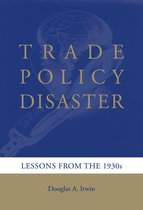Political, Economic and Financial Country Risk Ebook Tooltip Ebooks kunnen worden gelezen op uw computer en op daarvoor geschikte e-readers. Analysis of the Gulf Cooperation Council
Afbeeldingen
Sla de afbeeldingen overArtikel vergelijken
- Engels
- E-book
- 9783319021775
- 19 oktober 2013
- Adobe ePub
Samenvatting
“Decades go by and nothing happens; then weeks go by and decades happen”. This apt saying encapsulates the dramatic convulsions taking place across the Arab world that first erupted in 2011 in Tunisia and which rapidly spread to other countries. These events have affected the lives of ordinary citizens in many more ways than had been intended when the ‘Arab Spring’ broke out, with the endgame still not very clear as demonstrated in countries like Egypt, Syria and Libya.
By comparison, with some exceptions, the six countries comprising the Gulf Cooperation Council have been relatively unaffected by the general turbulence and uncertainties lapping around them. However, geopolitical shifts involving global superpower rivalries, combined with revolutionary breakthroughs in the non-conventional hydrocarbon energy sector are threatening to challenge the importance of the Arabian Gulf as the world’s leading suppliers of energy, putting their economies under fiscal stress. The author examines such challenges by:
• Providing the first in-depth statistical analytical assessment of the GCC countries using monthly data over the period 2001 -2013 for the three risk categories- economic, financial and political risks- and their sub –components so as to enable policymakers enhance components with low risk , while addressing components with perceived higher risk,
• Assessing FDI and capital inflows and outflows before and after the “Arab Spring” , and how to encourage FDI inflows,
• Inter –Arab and GCC trade and synergies in power transmission , transportation links and establishing new hubs of centers of manufacturing excellence ,
• Exploring private sector-led growth models to reduce forecasted unemployment.
Being complacent is not an option for the GCC. The aim of the book is that having a better understanding of each of the GCC countries’ individual riskparameters will enable the GCC meet future challenges and reduce the chances of a negative ‘Arab Spring’ occurring in the region.
Mohamed Ramady is a Visiting Associate Professor at the Department of Finance and Economics, King Fahd University of Petroleum and Minerals. His main research interests are the economics of the Middle East and Saudi Arabia in particular, as well as money and banking He also held senior positions with international financial institutions in the Arabian Gulf and Europe.
Productspecificaties
Inhoud
- Taal
- en
- Bindwijze
- E-book
- Oorspronkelijke releasedatum
- 19 oktober 2013
- Ebook Formaat
- Adobe ePub
- Illustraties
- Nee
Betrokkenen
- Hoofdauteur
- Mohamed A. Ramady
- Hoofduitgeverij
- Springer
Lees mogelijkheden
- Lees dit ebook op
- Android (smartphone en tablet) | Kobo e-reader | Desktop (Mac en Windows) | iOS (smartphone en tablet) | Windows (smartphone en tablet)
Overige kenmerken
- Studieboek
- Nee
- Verpakking hoogte
- 25 mm
EAN
- EAN
- 9783319021775
Je vindt dit artikel in
- Categorieën
- Taal
- Engels
- Boek, ebook of luisterboek?
- Ebook
- Beschikbaarheid
- Leverbaar
- Studieboek of algemeen
- Algemene boeken
Kies gewenste uitvoering
Prijsinformatie en bestellen
De prijs van dit product is 49 euro en 99 cent.- E-book is direct beschikbaar na aankoop
- E-books lezen is voordelig
- Dag en nacht klantenservice
- Veilig betalen
Rapporteer dit artikel
Je wilt melding doen van illegale inhoud over dit artikel:
- Ik wil melding doen als klant
- Ik wil melding doen als autoriteit of trusted flagger
- Ik wil melding doen als partner
- Ik wil melding doen als merkhouder
Geen klant, autoriteit, trusted flagger, merkhouder of partner? Gebruik dan onderstaande link om melding te doen.








